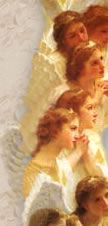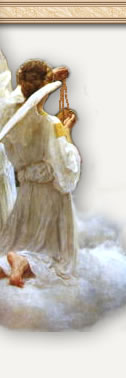




 |
|

|
|
|||||||||||
|
|
|
|
||||||||||||
 |
|
|
||||||||||||
 |
|
 |
|
|||||||||||
|
|
||||||||||||||
 |
 |
|
|
|
|
Dostoevsky and the Mystery of Russia The novel is the baby of the major literary forms. The lyric poem stretches back to the Homeric Hymns and the Psalms, the epic to Homer; drama prizes were being distributed in Athens in the fifth century B.C. and the short story is as old as the myth, the fables of Aesop and the parables of Our Lord Jesus Christ, not surprisingly a master of the short narrative given His larger creation. The novel, however, rises out of a potent combination of the printing press, the dawn of the Industrial Revolution, the rise of the middle class and an increase in leisure time. The new reader with some time on his hands and some pocket money quite reasonably wanted to read about what he knew best himself. The novel thus is born in realism and becomes the place where the writer captures or recreates the details of recognizable worlds. The first acclaimed and successful popular novel, and perhaps still the greatest, is Cervantes’ Don Quixote (1605). The dusty roads, the inns, the mountains, the cheese and the bread and the rusty armor, all are rooted in a reality new to literature. Cervantes’ great novel established
another significant defining element of the novel at its inception. The early
novels were comic in nature. Examining a real world, they of necessity were
social. Many of the early novels depicted the usual social dance of love and
marriage, work and play, gain and loss. Even the hugely popular Robinson Crusoe
(1720) looked at the attempt to build a little world
of one’s own on a desert island. Comedy’s central concern is the tension between
individuals and the society in which they attempt to live and such tensions
rooted the novel in a recognizable, but artistically shaped, real social order. Not until the eighteenth century
in France did the novel take a turn down more shadowy lanes. Perhaps because
the French knew in their deepest being the dark possibilities of social disruption,
their novelists turned the comic dance of the novel into a more solemn walk.
Novels such as Manon Lescaut (1731) and
Les
Liaisons Dangereuses (1782) begin to
direct the movement of the novel down darker and more haunted paths. The nineteenth century saw
the haunted darkness expand in the gothic novel and the novel of unfulfilled
romance. The novel seemed capable of exploring all possibilities of human
experience and new perspectives opened up, most importantly, the perspective
of the tragic. Tragedy is the “rara avis” among literary forms. The grandest and most powerful
of visions, tragedy is the most difficult to capture. Greece in the fifth
century B.C., England at the turn of the seventeenth century, France in the
latter part of the seventeenth century all produced tragedy, but the nineteenth
century saw tragedy move into new forms, the opera or music drama and the
novel. America produced one great tragic novel, Melville’s Moby Dick (1851). When the last golden arch falls into the dust
and the last video or computer screen goes blank, America will be remembered
for two astonishing accomplishments the placing of a man on the moon, the
result of our great science and engineering skills and our great wealth, and
a novel about a mad sea captain and a white whale, the product of our troubled
spiritual foundations. Tragedy in the novel reached
its apotheosis in the nineteenth century in Russia in the works of those
two giants of the long fiction form, Count Leo Tolstoy and Fyodor Dostoevsky.
Tolstoy certainly possessed great genius and his accomplishments are remarkable.
His influence cannot necessarily be called beneficial, however. His great
epic/tragic novel War And Peace serves up
a vision of history firmly in line with contemporary philosophical thought.
Tolstoy’s view of history denies the “great man” theory of history and,
operating in line with Hegelian principles, presents history as an inevitable
flow of
events. The “great man” in the novel, Napoleon, by trying to impose his own
will on events is crushed by the forces of inevitable movement, while the
wise old Russian general, Kutuzov, observes the pattern of the sweep of change
and accommodates himself to it, thus securing victory. The greatness of
Tolstoy’s
vision lies not in his illustration of recent theories but in his creation
of the world of Russia in the Napoleonic wars, the soirees, the battles,
the
landscape, the first love of Natasha, the courage of Andrei, the questions
of Pierre. Tolstoy’s greatest tragic vision
lies in Anna Karenina, a profound
moral tragedy. This masterwork also provides insight into Tolstoy’s Christian
vision. He believed himself a Christian and spoke the language of Christianity,
but with a restricted vocabulary. Tolstoy’s Christianity is grounded in forgiveness,
charity, virtue, brotherhood and peace. It is a vision stripped of the supernatural.
This is the reason that Tolstoy became so important to the peace movements
of the mid-twentieth century. His views strongly influenced men such as Gandhi
and Martin Luther King, Jr. The crux of this vision of action attaches man
only to earth; no transcendent spirituality or drama of eternal salvation
informs the work. Dostoevsky’s works bubble over
with life-and-death struggles of suffering and loss, salvation and damnation.
Born in 1821, he did not come as did most other major Russian writers of the
century from the landed gentry. His father, an authoritarian figure, worked
as a doctor in a small town. His mother, a devout woman, had an enormous influence
on her children. In his later days he stated, “I came from a pious Russian
family. In our family we knew the Gospel almost from the cradle.”1 His mother read him the Gospels as well as the lives
of the saints. The tales permeated his imagination from his earliest years. A single episode from his childhood
provided another defining moment in his faith. The family would leave the
small town where his father worked to vacation in the countryside. On one
such vacation, the young Dostoevsky was walking in the woods when he heard
voices shouting that a wolf was loose in the area. The young boy, terrified,
began trying to retrace his steps but found himself lost in the woods. He
saw a peasant plowing a field in the distance and ran toward him. The man
smiled and comforted the boy, pointed him toward home and reassured him by
saying his eye would remain on the youngster all the way to the boy’s home.
The peasant then said, “Now, Christ be with you, now, go!” and he made the
sign of the cross over the child, afterward crossing himself. Dostoevsky remembered
that he returned home with a feeling of complete security. He went to study at a military-engineering
school, even though from his earliest days he hoped to be a writer. His father
insisted that he receive a science-based education and the young man complied
with his father’s wishes. He proved to be an adequate student in a curriculum
that along with the science and engineering studies included religion, history,
architecture, Russian language and literature, French language and literature,
German language and literature, portrait drawing and art history. He immersed himself in the
popular ideas of the day and read heavily in the great romantic writers
Schiller, Hugo, Balzac, his first publication being a translation of Balzac’s
Eugenie Grandet. He absorbed a theory of German philosopher and romantic
aesthetician Friedrich Schelling who taught him that art is a means of “metaphysical
cognition, the means by which the highest transcendent truths are revealed
to mankind.”2 He imagined himself as an artist with
a high calling and saw his art as possessing a high mission for the good of
the Russian people. He served his time in the military
and then decided to pursue his life’s ambition to become a writer. His first
novel Poor Folk (1846) received
very positive reviews as it powerfully stirred up compassion for the disadvantaged,
being in line with the social concerns of the day. By 1848 he had begun to
associate himself with the Petrashevski group in St. Petersburg, young intellectuals
devoted to the study and implementation of the ideas of the French utopian
socialists. The socialist movement in St. Petersburg consisted of two separate
wings: those who based their ideas on Christian principles of assisting the
poor and downtrodden, and the atheist faction who abandoned any mention of
Christianity, claiming its adherents had done nothing over the centuries to
improve social conditions. Dostoevsky felt himself torn between the two groups,
longing to be intellectually radical but possessed of a heart shaped by the
Gospel reading and saints’ lives from his childhood. In 1849 the group was arrested
and charged with having read banned material and setting up a printing press
to distribute controversial and forbidden material. Dostoevsky was condemned
to death with the others. The morning of the execution, wearing the hoods
on their heads and hearing the guns cocked, they learned that their sentences
had been commuted to exile and imprisonment in Siberia. The arrival at the prison in
Siberia returned his thoughts to his childhood. Outside the walls, women who
had followed their husbands into exile waited and watched. They pleaded with
the officers to free the new prisoners and when their requests were refused,
the women handed copies of the New Testament to the prisoners and, making
the sign of the cross in the direction of the inmates, called out blessings
on them. Dostoevsky absorbed the New
Testament in prison. He also learned an important life lesson. Earlier, in
a letter to his brother Mikhail, he had written, “Man is an enigma. This enigma
must be solved. And if you spend all your life at it, don’t say you have wasted
your time; I occupy myself with this enigma because I wish to be a man.”3 Part of the enigma clarified for him during his prison
years. He discovered that not all the underprivileged were high-minded or
good. Many were degenerate scum. He rejected the “noble peasant” idea found
in most of Tolstoy’s writing and realized men must be judged one by one, on
their individual merits. Social class could not be used as a key to defining
character. He also learned from experience
something about the savage nature of human beings. Through observation of
his fellow prisoners he saw that we are disordered creatures, subject to outbursts
of irrational passions and destructive action. The more the individual personality
was confined and controlled, the more subject it became to these frenetic
explosions of willfulness. Part of this turbulence could be defined as a desire
of the individual will to express its own freedom. Human freedom had a compulsive
need to demonstrate its own existence. Dostoevsky’s great biographer Joseph
Frank puts the idea this way, “To fulfill this drive, men will sacrifice all
other goods and values; and if they are unable to satisfy it in any way, the
results can be disastrous.”4 Dostoevsky himself proved this
“disastrous” freedom by making a bad marriage in 1858 and giving in to his
temptation for gambling, a vice that haunted him for his entire life but did
produce his brilliant dissection of the addiction, The Gambler. He also came to be afflicted with epilepsy. He distanced
himself from his old friends as his political views became more and more conservative.
He saw clearly that man does not above all need material well being in this
world, but rather spiritual redemption. What Christ taught mankind, he now
knew, was that salvation can come only through suffering. Man must be ready
to share the sufferings of Christ in order to find salvation. In a world increasingly
absorbed with progress and utopias and comfort, Dostoevsky shouts, “No! Christ
lives and what He teaches us is that we must suffer.” Such belief could be neither
easy nor constant in the modern world. “I will tell you that I am a child
of the century, a child of disbelief and doubt. I will remain so until the
grave. How much terrible torture
this thirst for faith has cost me and costs me even now which is all the
stronger in my soul the more arguments I can find against it. And yet God
sends me
sometimes instants when I am completely calm. At those instants I love and
feel loved by others and it is at those instants that
I have shaped for myself a Credo where everything is clear and sacred to
me. This credo is very simple. Here it is: To believe that nothing is more
beautiful,
profound, sympathetic, reasonable, manly, and perfect than Christ. And I
tell myself with a jealous love that not only is there nothing more but there
can
be nothing more. Even more, if someone proved to me that Christ is outside
the truth and that in reality the truth were outside of Christ, then I should
prefer to remain with Christ rather than with the truth.”5 Joseph Frank summarizes Dostoevsky’s view
of modern man in this way, “Not to believe in Christ and immortality is to
be condemned to live in a senseless universe and the characters in his great
novels who reach this level of self-awareness inevitably destroy themselves
because by refusing to endure the torment of living without hope they have
become monsters in their misery.”6
This great struggle between belief and disbelief informs all the great novels
from Notes From Underground
through The Brothers Karamazov.
After nursing his wife through her fatal illness and then losing his beloved
brother Mikhail, Dostoevsky was granted the grace of a devoted second wife,
Anna Grigoryevna Snitkina. Hired to be his secretary, she became his spiritual
consolation. He dictated to her the vast fictional canvases on which an array
of recognizable human souls struggle with grand passions and high ideas. Dmitri
Karamazov says God and the devil are fighting and the battlefield is the heart
of man. The novels of Dostoevsky come closer to the core of the modern dilemma
than any other body of modern literature and his knowledge of human beings
is the keenest in art since Shakespeare. But some great artists may
also be graced by God with another gift. Some artists have oracular flashes,
offering up profound prophetic pronouncements. Such instances stretch from
the vision of Vergil in his Fourth Eclogue (37 B.C.) which suggests the coming
of Our Lord as a child who will bring a reign of peace to a troubled world
to the chilling example of the Japanese man in Strindberg’s play The Great Highway
(1909) who announces that he is named
for his native town Hiroshima just before he steps into a furnace and is incinerated.
No artist ever set down more accurate prophetic pronouncements than Dostoevsky.
In his great novel about the revolutionary movement, Demons (1872), Dostoevsky accurately predicted not only the
coming of socialism to Holy Mother Russia, as he termed his country, but also
the devastating consequences. At more than one point in the novel, he has
characters pronounce the cold fact that the revolution will triumph “by radically
lopping off a hundred million heads.”7 Shigalyov, the
character presenting the plan, admits a problem, for “[s]tarting from unlimited
freedom, I conclude with unlimited despotism.”8 Dostoevsky seemed to witness the abyss into which his
country would descend in the twentieth century. He combines his vision of
the nightmare looming over Russia with the incident of the Gadarene swine
from the Gospel of Luke, a passage he uses as one of the epigraphs for the
novel. He again quotes the passage from Luke when a character in the novel,
Sofya Matveevna Ulitin, a woman who travels from town to town passing out
Gospels, reads the words at the request of the dying liberal professor, Stepan
Trofimovich Verkhovensky, the man whose soft socialist teaching has unleashed
the “demons” in the next generation. After hearing the passage, the dying
professor says:
Russia is presented as a possessed madman, out of whom demons will rush, infect others and push multitudes of those so “possessed” into destruction. The connection with Our Lady’s message to the shepherd children at Fatima on the eve of the Russian revolution is unmistakable: “Russia will spread her errors throughout the world.” Dostoevsky makes many Catholic
readers uncomfortable. In many of his novels he rails against the Catholic
Church. His knowledge of the Catholic Church, however, came largely from the
French socialists who had such a profound influence on him in his youth. Dostoevsky
viewed the Catholic Church as an institution that had abandoned its spiritual
beliefs in a quest to give mankind earthly happiness. He has the Catholic
Grand Inquisitor state to Christ in The Brothers Karamazov, “You promised them heavenly bread, but, I repeat again,
can it compare with earthly bread in the eyes of the weak, eternally depraved,
and eternally ignoble human race?”10 Dostoevsky related his sense
of how the Catholic social preoccupation worked. “The Catholic priest searches
out some miserable worker’s family and gains their confidence. He feeds them
all, gives them clothes, provides heating, looks after the sick, buys medicine,
becomes the friend of the family and converts them to Catholicism.”11 This sense of the socially obsessed Catholic Church
which places earthly comfort before redemptive suffering and peace on earth
before peace of soul must make any post-Vatican II Catholic uncomfortable
in its precision. The only error when applied to the Novus Ordo Church is
that the priest would no longer attempt to convert the family. The sentimental
socialism of the nineteenth-century French intellectuals whom Dostoevsky came
to despise found a happy home in the post-conciliar Church. With his insistence on suffering and salvation, the supernatural and sacrifice, Dostoevsky echoes many of the teachings of the Catholic Church. With his prophetic vision of a possessed Russia unleashing her demons into the world, he echoes the prophecies of Fatima, and not only those prophecies that already come to fruition. The above quoted words from the deathbed of Stepan Trofimovich Verkhovensky in Demons conclude with the following remarks:
Russia will be healed; Russia will sit at the feet of Our Savior and the whole world will be amazed. “In the end my Immaculate Heart will triumph, Russia will be converted and a period of peace will be granted to mankind.” Heaven granted this man, a modernist, a tormented doubter, a gambler and epileptic, a foe of socialistic Catholicism, a novelist, a glimpse of the Fatima prophecies before heaven chose to reveal them to the world, a fact that presents us with mysteries as to the nature of art and the will of God. In his final novel, The Brothers Karamazov , Dostoevsky has the wise elder Father Zossima on the brink of the grave say, “This star [the image of Christ] will shine forth from the East.” The same promise has been given us by Our Lady and we who suffer here in the maelstrom of the modern atheistic, materialistic world still await that glorious moment. ___________________________________________________ 1. Joseph Frank, Dostoevsky: The Seeds of Revolt 1821-1849 (Princeton: Princeton University Press, 1976), p. 43. 2. Ibid., p.64. 3. Ibid., p. 91. 4. Joseph Frank, Dostoevsky: The Years of Ordeal 1850-1859 (Princeton: Princeton University Press, 1983), p. 153. 5. Ibid., p. 160. 6. Ibid., p. 159. 7. Fyodor Dostoevsky, Demons (Vintage Books, 1994), p. 405. 8. Ibid., p. 402. 9. Ibid., p.655. 10. Fyodor Dostoevsky, The Brothers Karamazov (Vintage Books, 1991), p. 253. 11. Joseph Frank, Dostoevsky: The Stir Of Liberation 1860-1865 (Princeton University Press, 1986), p. 188. 12. Dostoevsky, Demons, p. 655. David Allen White is a professor of English at the U.S. Naval Academy in Annapolis, Maryland. An earlier version of this paper was delivered at the Dietrich von Hildebrand Institute’s summer seminar in Italy.
|
|



♦ About The Mass ♦ Resources ♦ How To Help ♦ Contact Us ♦